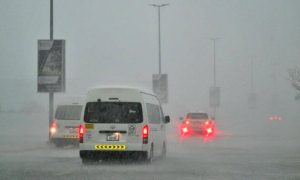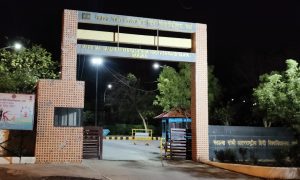Expanding access to health services with self-care interventions
Expanding access to health services with self-care interventions
New Delhi, 02th July 2019. At least 400 million people worldwide lack access to the most essential health services. By 2035, there will be an estimated shortage of nearly 13 million healthcare workers. Around 1 in 5 of the world’s population will be living in settings that are experiencing humanitarian crises.
At the same time, new diagnostics, devices, drugs and digital innovations are transforming how people interact with the health sector.
In response to this, WHO launched its first guideline on self-care interventions for health, with a focus in this first volume on sexual and reproductive health and rights. Some of the interventions include self-sampling for HPV and sexually transmitted infections, self-injectable contraceptives, home-based ovulation predictor kits, HIV self-testing and self-management of medical abortion.
These guidelines look at the scientific evidence for health benefits of certain interventions that can be done outside the conventional health sector, although sometimes with the support of a health-care provider. They do not replace high-quality health services nor are they a shortcut to achieving universal health coverage .
What is self care?
Self care is “the ability of individuals, families and communities to promote health, prevent disease, maintain health, and cope with illness and disability with or without the support of a health-care provider”.
Self-care interventions represent a significant push towards new and greater self-efficacy, autonomy and engagement in health for self-carers and caregivers. In launching this guideline, WHO recognizes how self-care interventions could expand access to health services, including for vulnerable populations. People are increasingly active participants in their own health care and have a right to a greater choice of interventions that meets their needs across their lifetime, but also should be able to access, control, and have affordable options to manage their health and well-being.
Access for the most vulnerable
Self-care interventions are a complementary approach to health care that forms an important part of the health system. Self care is also a means for people who are negatively affected by gender, political, cultural and power dynamics including those who are forcibly displaced, to have access to sexual and reproductive health services, as many people are unable to make decisions around sexuality and reproduction.
Promoting a safe and supportive enabling environment in which they can access and use health interventions when and where they choose to, improves autonomy and helps improve the health and well-being of these vulnerable and marginalized people.
Importance of self-care
The importance of self-care interventions for health policy, financing and systems has thus far been undervalued and its potential not fully acknowledged, despite the fact that people have been practicing self care for millennia.
WHO’s first consolidated guideline on self-care interventions for health – starting with the importance of sexual and reproductive health and rights – is a step in placing people at the centre of health care, bringing quality interventions to them, while maintaining the accountability of the health system.
Role of health providers and self-care
WHO is assessing the role of health providers and the competencies they need to support self-care interventions. To date, the evidence suggests that self-care allows health providers to serve greater numbers of people and use their skills where greatest need exists.
The guidelines will be expanded to include other self-care interventions, including for prevention and treatment of noncommunicable diseases. WHO is establishing a community of practice for self-care, and will be promoting research and dialogue in this area during self-care month (24 June to 24 July).






















 WhatsApp us
WhatsApp us
Pingback: best online pharmacy
Pingback: CBD cures High Blood Pressure
Pingback: Recorded Webcam Sex Videos
Pingback: pinewswire
Pingback: blazing trader
Pingback: Sexy video
Pingback: diamond painting
Pingback: Digital Transformation technologies
Pingback: DevOps
Pingback: sex pistols jojo
Pingback: Library
Pingback: Handyman Near me
Pingback: Robotic Process Automation in Banking
Pingback: 먹튀검증
Pingback: Cybersecurity in Banking
Pingback: buy cvv2
Pingback: betflix
Pingback: สล็อตวอเลท
Pingback: dumps cc shop
Pingback: sbo
Pingback: Legal Steroids Online
Pingback: assistência informática lisboa
Pingback: Magic mushroom chocolate bar in stock for sale
Pingback: reviews good dumps shop
Pingback: sbo
Pingback: buy viagra online
Pingback: Magic Mushroom Store Denver
Pingback: wine gummies with alcohol
Pingback: betclic88
Pingback: Automated Test Platform
Pingback: kupontoto
Pingback: visit homepage